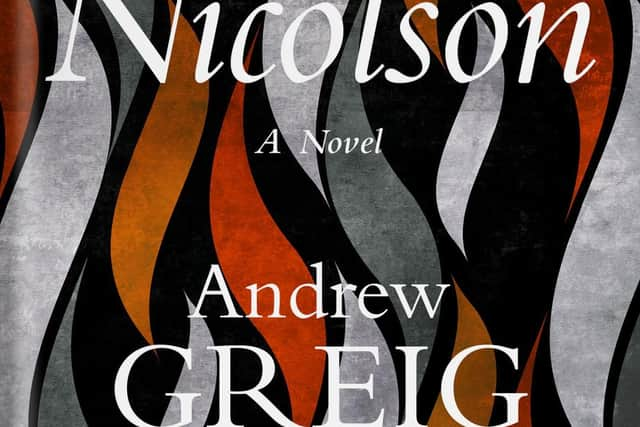Book review: Rose Nicolson, by Andrew Greig


Rose Nicholson is a remarkable novel, a work of imagination, intelligence and gusto, set in the troubled and violent years of James VI’s minority, a time when it was not yet certain that the Protestant revolution would hold, and the hope of a Catholic restoration was still alive. It is therefore a historical novel, but it is also a romance in which wonderful things happen and the Rose Nicolson of the title, a St Andrews fisher-girl of remarkable intellectual gifts, is accused of necromancy. Add to this murders, political conspiracies, poetry, philosophical reflections, and reiving raids over the English Border, and it is evident that Greig has concocted the richest of brews.
The narrator is William Fowler, a historical figure. Actually this is all but irrelevant. The novel would be as gripping and read with the same authority if Fowler was a creature of Greig’s imagination. Fair enough, necessary too, for few readers are likely to have heard of Fowler, minor poet, pamphleteer, printer, scholar, trader, financier and friend of George Buchanan, the great humanist scholar, poet, playwright, historian, turned protestant reformer, severe critic of Queen Mary and tutor to her son James VI, “Jamie Saxt” in the novel. Greig gives a sympathetic and persuasive picture of Buchanan.
Advertisement
Hide AdFowler, in real life and the novel, is the son of an Edinburgh merchant, now dead, and his Catholic wife, an astute businesswoman and money-lender. The novel begins with his departure to enroll as a student in St Andrews. On a stormy voyage from Leith to Fife, he is joined spewing over the rail by a youth with long bright red hair who surreptitiously borrows his dirk, restoring it just as secretly after it has done its work in the black night. The boy is the young Walter Scott, Laird of Branxholm and Buccleuch, and, ever mindful of this debt to William, he will be his friend and stay so for life. This young Walter Scott is a violent and engaging character, wholly convincing. Either the other Walter Scott or Stevenson would have been happy to depict him as Greig does.


The evocation of St Andrews and student life there – the town ravaged by religious strife with its great cathedral already ruined – splendidly convincing. There, William makes friend with a fellow bejant from a fishing family but of Highland origin. His sister is the Rose of the title. Already betrothed to a fisherman, she will be the love and lodestar of Fowler’s life. If it seems improbable that a fisher-girl, even one coached by her academic brother, should be able to read Latin, ponder on philosophy, and form and express dangerously heretical opinions, well, this is a romance in which the improbable is always possible, and is here convincing. Rose would be at home in a Waverley novel, and no other justification of the character and mind Greig gives her is necessary.
To attempt to offer even a faint outline of the plot would be absurd in a short review. To quote that other Walter Scott again, “what is the plot for but to bring in fine things?” - and fine things are here in happy and entrancing abundance.
A note on the history is however called for. The turbulent, confused and confusing years of the boy-king’s youth are not, I suppose, anything like as well known as the story of Mary Queen of Scots or the history of the 17th-century Civil Wars. Greig, faithful as far as I can tells to the facts, brings them to life. If there are echoes throughout of Scott and Stevenson, his treatment of the blood-drenched rivalries, conspiracies and treacheries of these years which saw two Regents assassinated and the longest-surviving one, the Earl of Morton, eventually condemned to death, is in the manner of Dumas, and every bit as riveting as The Three Musketeers or Twenty Years After.
This novel is full of surprises, rich in delights. Greig writes with rare authority and understandings. Sometimes it seems as if he was behind a heavy tapestry or curtain listening to everything being said, then keeking through a gap to view the action. Finally, there is a rich use of Scots, enough to require a glossary, but for the most part, though there is an occasional and mildly disturbing intrusion of 21st century words or phrases, it is lucid and has the essential rapidity that a historical romance requires.
Rose Nicolson, by Andrew Greig, riverrun, 452pp, £18.99
A message from the Editor:
Thank you for reading this article. We're more reliant on your support than ever as the shift in consumer habits brought about by coronavirus impacts our advertisers.
If you haven't already, please consider supporting our trusted, fact-checked journalism by taking out a digital subscription at https://www.scotsman.com/subscriptions